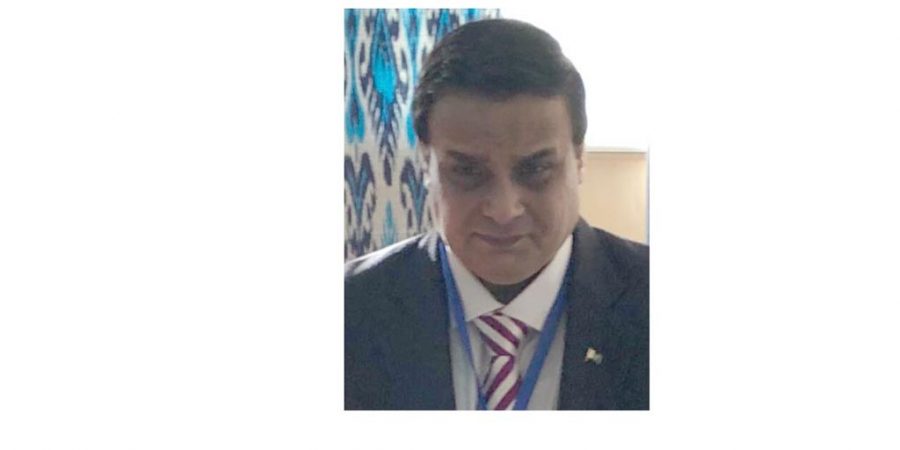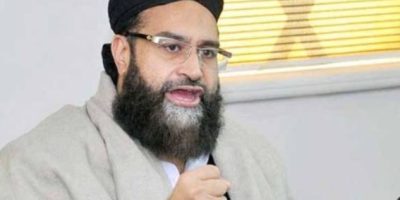Kazakhstan’s New Economic Plan Dr Mehmood Ul Hassan Khan

To achieve the desired goals of economic sustainability, H.E. President of Kazakhstan Kassym-Jomart Tokayev has advised the government to prepare a new befitting economic plan/path/policy to revolutionize the national economy by gearing up mechanism of structural reforms which may also mitigate the spillover socio-economic repercussions of ongoing global recession.
While chairing the meeting of the Atameken National Chamber of Entrepreneurs the president instructed the administration to develop an economic reform program by May 15, 2020. In this connection, the government and Kazakh Parliament have adopted various diversified but integrated programs to achieve the macroeconomic goals set out in President Tokayev’s election campaign platform. The President of Kazakhstan has instructed the government to improve national legal system, process of legislation and regulation according to guidelines and standards of the Organisation for Economic Cooperation and Development (OECD) in all associated sectors of economy including healthcare and financial markets.
Financial facilities provide necessary fuel to channelization and operationalization of macro-economy. In modern economic arena loans are considered as engine to industrialization, job creation, expansion of consumer market, and its easy and smooth supply maintains creditable monetary policy. President Tokayev showed his concerns about slowing of lending which decreased from 23 to 22 percent of GDP during 2019.
Inflationary trends spark social uneasiness. It creates price hike which leads towards economic compromises. Due to many complicated and overlapping regional compulsions and global economic and financial constrains, Kazakhstan confronted the highest level of inflation in the Eurasian Economic Union. Diversification of economy and productive channels has been one of the foremost strategic priorities of President Tokayev. In this regard, the President has also noted the government needs to address slow growth in non-oil exports and a lack of an increase in labour productivity in 2019.
Nevertheless, to achieve the desired goals of economic sustainability, socio-economic prosperity, massive industrialization, diversification of economy, qualitative health care system, high education and housing systems, social entrepreneurship, new job creation and last but not least, international standards of human capital the President reaffirmed his commitment to the objectives set by Kazakhstan’s First President Nursultan Nazarbayev in the Strategy 2050, Strategic Plan for the Development of the Country until 2025 and the Plan of the Nation of 100 Concrete Steps.
President Tokayev stressed the need to have new “economic course” and evaluation process and resolution mechanism to pinpoint the key problems and methods to solve them. He termed reforms to stimulate economy which needs strong will and decisiveness.
President Tokayev outlined his government priorities not confining to build a transparent fiscal and industrial policy to protect entrepreneurs, to provide access to sales markets, to increase the productivity of enterprises and competitiveness and to increase the quality of domestic products.
President stressed that the basis of economic structural reform should stimulate the growth of per capita incomes through job creation and increase in salaries, through the improvement of the quality of human capital and the building of a transparent fiscal policy.
Furthermore, suitable monetary policy and a vibrant financial market should provide long-term and befitting financing of national economy, he added. In this connection he projected that the development of entrepreneurship and the strengthening of mechanisms necessary to strengthen competition protections.
During the government meeting, the President also advised to establish the Centre for Analysis and Monitoring of Socio-Economic Reforms under the Presidential Administration without any budgetary costs. The centre will operate on a voluntary basis and will later be transformed into a Presidential Reform Agency. The centre will consist of representatives of the scientific and expert community. Kazakhstan’s President has also announced a long-term budgetary allocations for the purchase of expensive transportation, furniture, and holding of forums, seminars and conferences.
Knowing the strategic importance of immaculate trade policy for pushing forward the macro-economy and its associated sectors and sub-sectors, during the meeting the President also instructed authorities to develop a Trade Policy Program 2025, develop the National Certification System and develop and adopt the Law on Technical Regulation by the end of 2020.
Food security has once again become hot topic in the world because of ongoing Mexican wave. Development of a strong and sustainable agro-economy has become vital even for overall macro-economy. In order to increase the agriculture share in term of GDP % the Kazakhstan ministry of agriculture has been directed to create conditions for the processing of raw products in the country. The share of agriculture in Kazakhstan’s GDP has not exceeded 4.5 percent despite more than 2.4 trillion tenge (US$6.3 billion) allocated to the sector over the past five years.
The President also observed and upheld housing construction a government priority. In 2019, social support expenses were 3.5 trillion tenge (US$9.2 billion) or 30 percent of the state budget. Approximately four million people were included in the social protection program. Some 20,000 families have received loans as part of the Bakytty Otbasy (Happy Family) and 7-20-25 mortgage program. Tokayev also called for more stringent registration of cars imported from Eurasian Economic Union (EAEU) countries. People have to pay the registration fee and tax. Temporary registration should be carried out without the right of alienation and transfer to use and disposal to other persons,” he said.
Prime Minister Askar Mamin also said during the meeting that the Kazakh government will create more than 400,000 jobs in tourism, trade and construction, manufacturing and agriculture in 2020.
According to latest report (March 20, 2020), personal incomes in Kazakhstan increased 5.5 percent and GDP growth was 4.5 percent in 2019. Non-resource sectors accounted for 80 percent of growth. Construction, trade, transport and production sector became the main drivers of growth. The manufacturing industry increased 4.4 percent in 2019. The mining industry achieved 3.7 percent in 2019 as a result of an increase in metal ore production by 16 percent.
Prime Minister Askar Mamin elaborated termed creation of new job as the most important priorities. Moreover, the investment projects ensured a transition to a new level in the production of goods and services, which led to labour productivity increase up to 8.2 million tenge (US$21,660) per person,” said Mamin. Labour productivity in 2019 was 7.4 million tenge (US$19,500) per person.
According to latest statistical data (March 20, 2020), investments in fixed assets increased 8.5 percent in 2019, including private investment by 9.5 percent. The inflation rate in Kazakhstan remained within the planned corridor of 4-6 percent with the level of 5.4 percent.
Kazakhstan attracted approximately $25 billion in foreign direct investment and the share of small and medium-sized enterprises in economy reached 29.5 percent in 2019. The number of operating enterprises grew by 8 percent in 2019. Furthermore, as of January 2020, 93 percent of the comprehensive privatisation had been implemented. Approximately 2.7 million people in Kazakhstan receive salary increases in 2019 and more than 423,000 jobs were created.
H.E. President of Kazakhstan Kassym-Jomart Tokayev suggested new rules for economic development based on rigorous structural reforms in every sector of national economy. He pinpointed various reasons for slowing of credit supply, inflationary trends, non-adherence to government’s instructions towards governance and delivery to general masses and rightly chalked out certain holistic strategies to overcome these shortcomings. It seems that by analyzing the ongoing various socio-economic reforms, trade, fiscal, monetary policies and performance of regulatory bodies, the President of Kazakhstan rightly suggested the right policy to put his country on the right path of economic sustainability and socio-economic prosperity.
Related News

Shaheed Muhammad Shahzaib buried with full military honours in Mianwali
MIANWALI, FEB 1 /DNA/ – Shaheed Muhammad Shahzaib MGT-I was laid to rest with fullRead More

Ashrafi emphasizes interfaith harmony for peace, national unity
LAHORE, Feb 1: Prime Minister’s Coordinator for Religious Harmony and Pakistan Ulema Council (PUC) ChairmanRead More


Comments are Closed